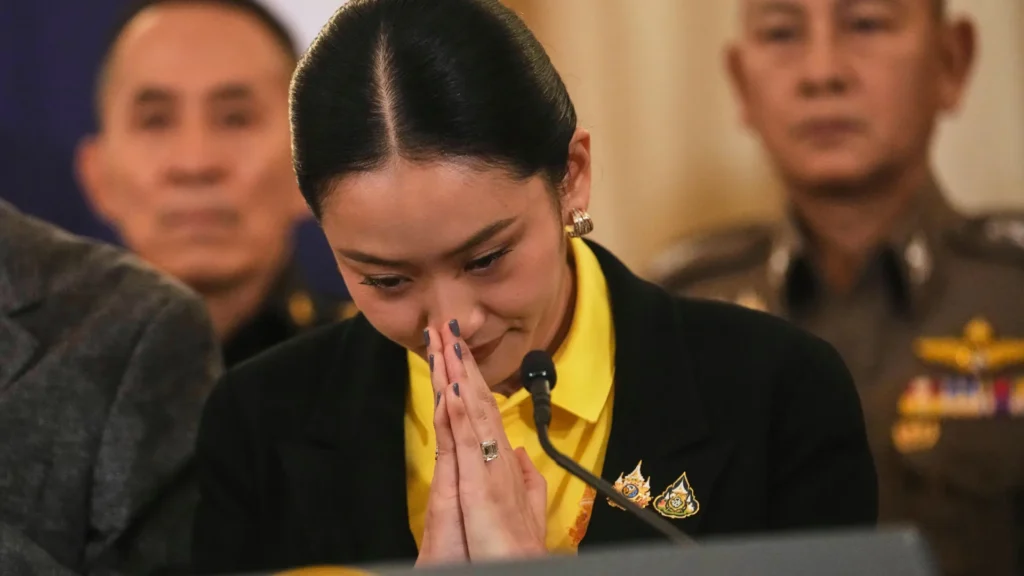Thailand was thrust into fresh political turmoil on Friday after the Constitutional Court dismissed Prime Minister Paetongtarn Shinawatra for an ethics violation, plunging the country into another fierce contest for power.
Paetongtarn, 39, the youngest premier in Thailand’s history and daughter of former leader Thaksin Shinawatra, becomes the sixth prime minister from the powerful Shinawatra dynasty to be removed by either the military or judiciary. The ruling comes just nine months after she was unexpectedly elevated to power following the dismissal of her predecessor, Srettha Thavisin, by the same court.
In a 6-3 decision, judges said Paetongtarn had put personal ties before national interests in a leaked June phone call with former Cambodian strongman Hun Sen. The court ruled her actions compromised Thailand’s sovereignty and reputation as the two countries teetered on the brink of armed conflict. Skirmishes eventually broke out along the border, lasting five days.
The decision immediately triggered political maneuvering, with the Bhumjaithai Party led by Anutin Charnvirakul emerging as the frontrunner to form a new government. Anutin has begun rallying support across Bangkok, promising to dissolve parliament and call fresh elections within four months if successful.
Paetongtarn struck a conciliatory tone, urging unity despite her removal. “All I wanted was to safeguard the lives of people, whether soldiers or civilians,” she said, adding that stability must be the priority.
Deputy Prime Minister Phumtham Wechayachai will serve as caretaker until parliament selects a replacement. Lawmakers will convene a special session between September 3-5, though no vote on a new leader has been scheduled.
The race to succeed Paetongtarn is wide open. Among the five eligible candidates is Chaikasem Nitisiri, a 77-year-old Pheu Thai stalwart with limited political clout, and Anutin, who claimed late Friday that he already commands the necessary votes.
Analysts warn of prolonged instability, with any Pheu Thai-led government likely to hold only a slim majority vulnerable to collapse. Public discontent over a faltering economy and stalled reforms may also fuel protests, adding pressure to a fragile political order.
“The process of appointing a new prime minister may take time,” said Chulalongkorn University’s Stithorn Thananithichot. “Pheu Thai is now at a clear disadvantage.”

